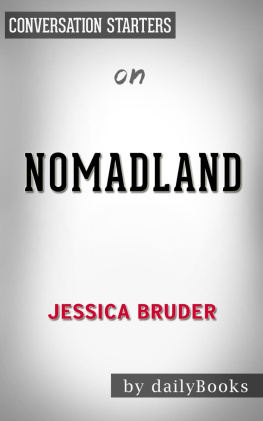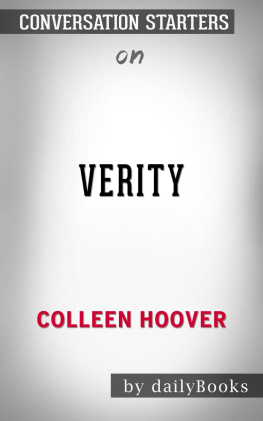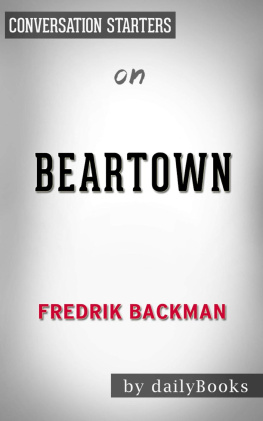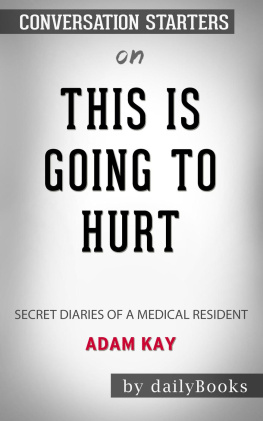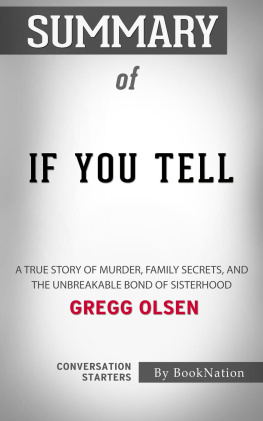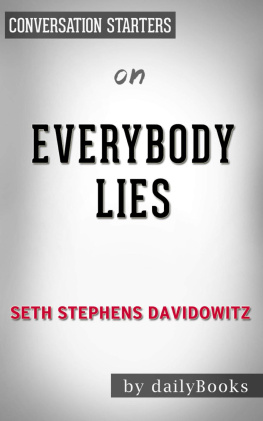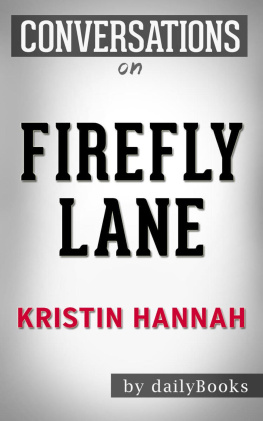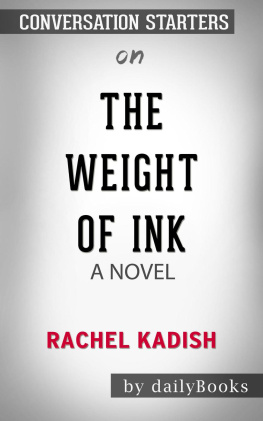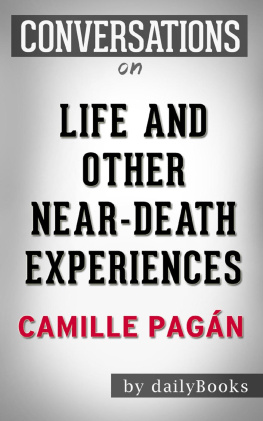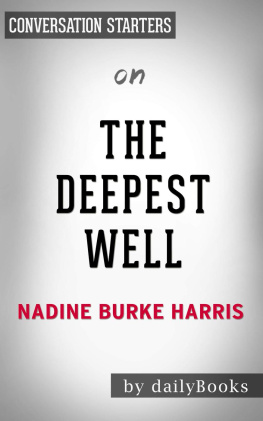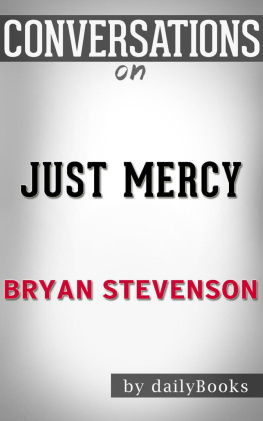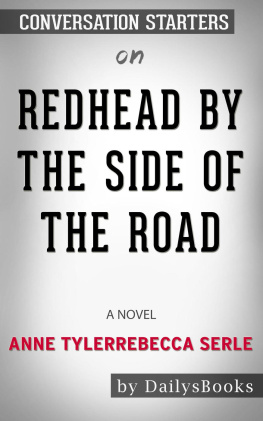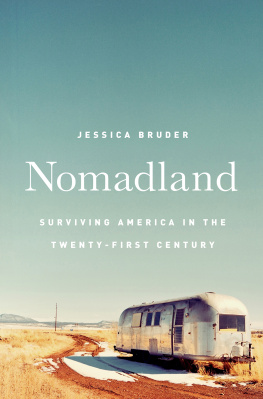Conversation Starters
for
Jessica Bruders
Nomadland: Surviving America in the Twenty-First Century
By dailyBooks
Get Your Free Books with Any Purchase of Conversation Starters.
Add spice to any conversation
Never run out of things to say
Spend time with those you love
FREE download below!

or Click Here.

Scan Your Phone
Please Note: This is an unofficial conversation starters guide. If you have not yet read the original work or would like to read it again, get the book here.
Copyright 2017 by dailyBooks. All Rights Reserved.
First Published in the United States of America 2017
We hope you enjoy this complementary guide from dailyBooks . We aim to provide quality, thought provoking material to assist in your discovery and discussions on some of todays favorite books.
Disclaimer / Terms of Use: Product names, logos, brands, and other trademarks featured or referred to within this publication are the property of their respective trademark holders and are not affiliated with dailyBooks. The publisher and author make no representations or warranties with respect to the accuracy or completeness of these contents and disclaim all warranties such as warranties of fitness for a particular purpose. This guide is unofficial and unauthorized. It is not authorized, approved, licensed, or endorsed by the original book's author or publisher and any of their licensees or affiliates.
No part of this publication may be reproduced or retransmitted, electronic or mechanical, without the written permission of the publisher.
Tips for Using dailyBooks Conversation Starters:
EVERY GOOD BOOK CONTAINS A WORLD FAR DEEPER THAN the surface of its pages. The characters and their world come alive through the words on the pages, yet the characters and its world still live on. Questions herein are designed to bring us beneath the surface of the page and invite us into the world that lives on. These questions can be used to:
- Foster a deeper understanding of the book
- Promote an atmosphere of discussion for groups
- Assist in the study of the book, either individually or corporately
- Explore unseen realms of the book as never seen before
About Us:
THROUGH YEARS OF EXPERIENCE AND FIELD EXPERTISE, from newspaper featured book clubs to local library chapters, dailyBooks can bring your book discussion to life. Host your book party as we discuss some of todays most widely read books.
Table of Contents
Introducing Nomadland: Surviving America in the Twenty-First Century
N omadland: Surviving America in the Twenty-First Century was written by Jessica Bruder, a journalist who spent years researching people who have been forced by their financial troubles to give up their homes and live in their vehicles. These nomads are called workampers and are mostly retirees (55 and older). They have been forced to give up the stable lives they once believed they would enjoy in retirement and live a more transient lifestyle, going where the work issometimes that means living near a warehouse in the busy Christmas season or near a farm during harvest season. These older Americans are finding that social security does not provide enough to live, and they end up being upside down in their mortgages and are forced to join the thousands of others, being forced to live in cars, vans, RVs, etc. and relying on low-wage, seasonal jobs for their survival.
In her three years of research, the author gets to know these workampers, not only by interviewing them but she also bought a van on Craigslist so she could truly immerse herself in their way of life. Bruder follows some of these workampers from job to job, working alongside them cleaning toilets in a campground to harvesting beets. During her time with the workampers, Bruner meets people from many unexpected backgrounds, including a minister, a former college administrator, a former vice president of a large corporation, and more.
Jessica Bruner investigates the why and how of the workampers lifestyle. Although some now enjoy their new nomad way of life, most would have never chosen it and would prefer a more traditional way of life. Although the book may seem to have a negative tone, Bruner does show admiration for the workampers because of their ability to survive in such circumstances and the creative ways they have learned to cope with their new way of life.
Workampers are kind, creative, humorous, hopeful, and have a strong sense of camaraderie. They even have their own slang, including phrases like wheel estate, driveway surfin, ear banging, GTGs, and roadschooled, to name a few. They are creative in how they have designed their homes with custom designs to make their vehicles more livable. They even come up with fun names for their vehiclesSqueeze Inn, Van Go, Van Halen, and Porta Potty. They spend time mapping out where they will travel to and stay overnight, all the while maintaining a low profile. They have a strong sense of community and like to get together with other workampers at GTGs, like the one that Bob Wells organized called the Rubber Stamp Rendezvous, which is held in Arizona.
Employers are benefitting from the workampers as they typically work harder and cost less than traditional employees. One of the major players in the game is Amazon, but other employers have gotten in on the action as well, including farmers and campgrounds. The jobs they take are grossly underpaid and dangerous. For many of them, the lifestyle and jobs negatively affect their health.
In the book, Jessica Bruder calls the support baby boomers are receiving from their social security checks, woefully inadequate. She explains that baby boomers are doing worse than the generations before them regarding their living standards in retirement. Baby boomers, to the tune of almost nine million, are still working past the age of 65.
In the book, Bruder discusses itinerant subcultures and the economic inequality they face due to government economic policies. When asked in an interview about possible solutions to the issues in the book, she said that, although there was a mix of liberals, conservatives, and libertarians living a nomadic lifestyle, many of them are uninterested in the politics that drive the economy. However, all shared a common skepticism about whether the economy could be changed by the government. She doesnt think the current migrant subculture would ever organize politically, so she hopes the book will be a wake-up call about the possibility of the stories in the book being a reality for many more Americans in the future, which would hopefully drive some political change.
Next page
